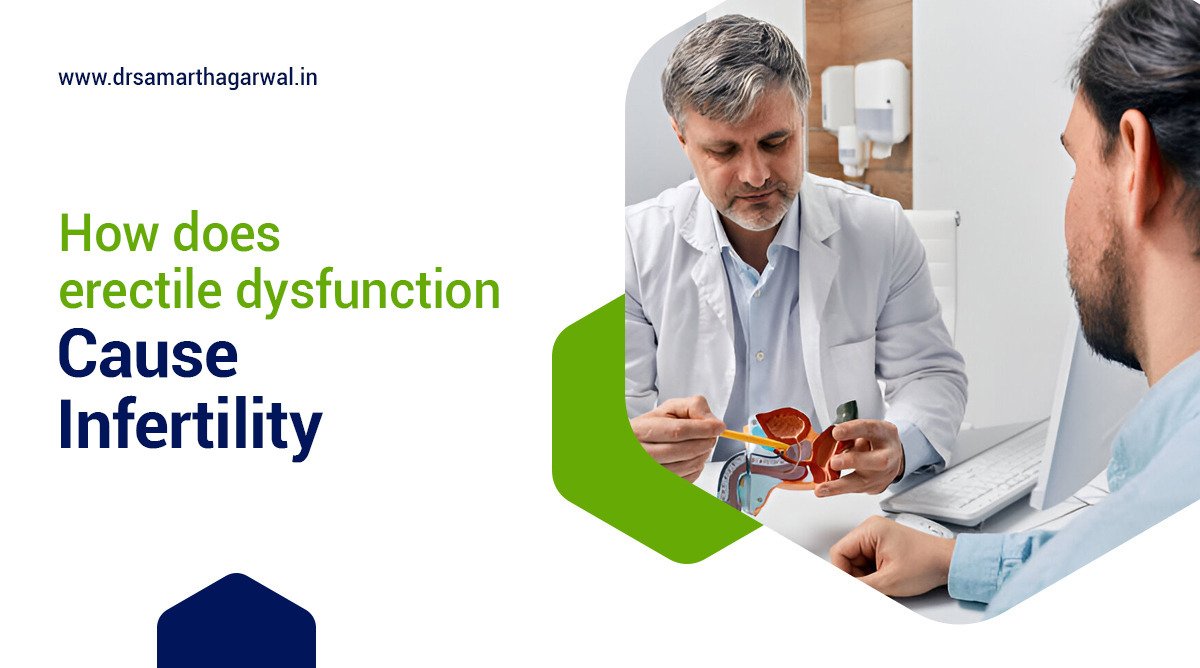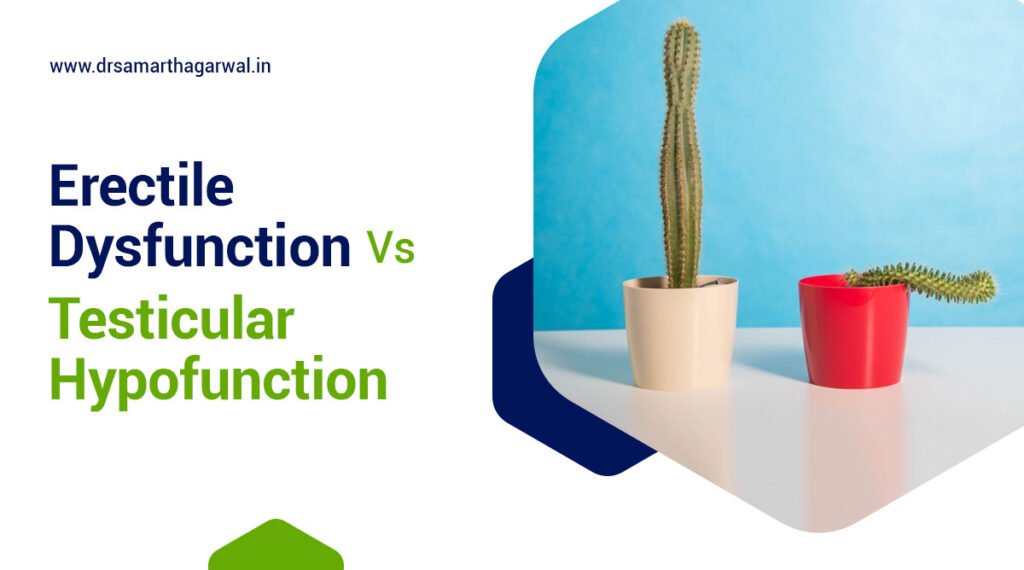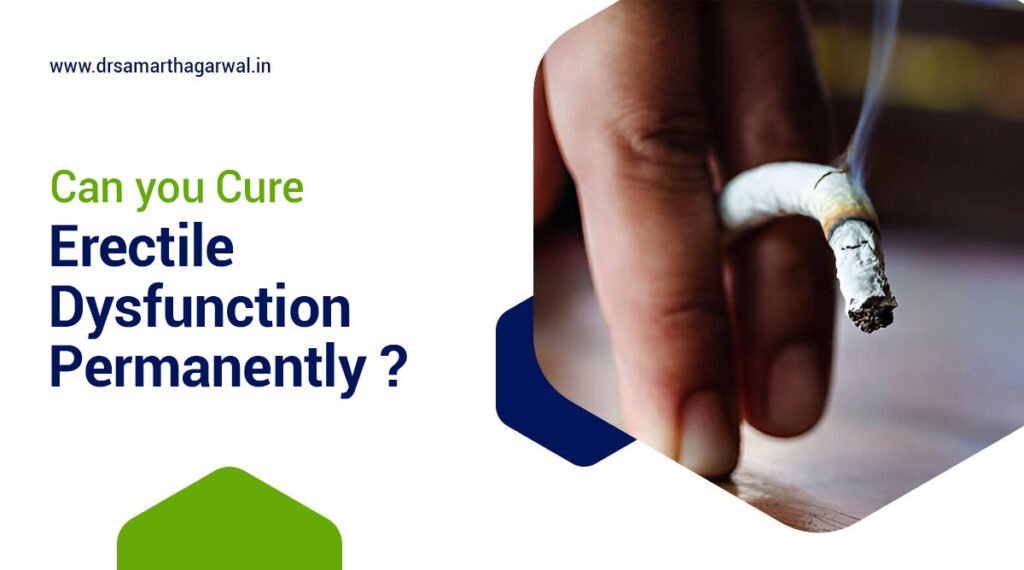Erectile dysfunction (ED) is a condition characterized by the inability to achieve or maintain an erection sufficient for sexual intercourse. This condition can indirectly cause infertility due to shared risk factors and complications.
The symptoms of ED include the inability to get an erection, difficulty maintaining an erection, and reduced sexual desire. In some cases, ED may be accompanied by other symptoms such as decreased libido, fatigue, and depression.
Erectile dysfunction (ED) is a complex issue that can arise from a combination of physical and psychological factors. On the physical side, conditions like heart disease, diabetes, high blood pressure, and neurological disorders can increase the risk of ED. Meanwhile, stress, anxiety, and depression can also take a toll on sexual health. Additionally, certain medications, alcohol, and drug use can further contribute to the development of ED.
While ED does not directly cause infertility, it can affect fertility by reducing the frequency of sexual intercourse, which is necessary for conception. Additionally, ED can be a sign of underlying health conditions that may affect fertility, such as hormonal imbalances or damage to the reproductive system.
Erectile dysfunction (ED) can contribute to male infertility by affecting the quality and quantity of sperm, as well as the ability to ejaculate.
According to Stephen W. Leslie, Taylor L. Soon-Sutton, and Moien AB Khan’s 2024 study “Male Infertility” published on StatPearls, ED can be caused by various factors, including endocrinological, environmental, genetic, and immunological causes. ED can also be a result of sexual dysfunction, urogenital tract infections, and medications or drugs. The study highlights that ED can affect the male’s ability to conceive and that it is essential to evaluate both partners for infertility and manage them together.
Understanding Erectile Dysfunction
Understanding erectile dysfunction (ED) is crucial to comprehending its impact on infertility. ED is a sexual health issue that affects a man’s ability to achieve or maintain an erection sufficient for sexual intercourse. Erectile dysfunction (ED) is defined as the consistent inability to achieve or maintain an erection sufficient for sexual intercourse. Common symptoms of ED include difficulty getting an erection, difficulty maintaining an erection, and reduced sexual desire.
Causes of Erectile Dysfunction
Erectile dysfunction (ED) can contribute to infertility due to various underlying causes. Understanding these causes is essential to addressing the connection between ED and infertility.
Erectile dysfunction (ED) is a common condition associated with aging, and the most important risk factors are associated with the impaired balance between contractant and relaxant mechanisms of penile structures, resulting in arterial insufficiency and defect smooth muscle relaxation.
The normal erectile function involves the synthesis of nitric oxide (NO), the main neurotransmitter mediating erectile processes, and the subsequent accumulation of cyclic GMP (cGMP). The NO formation, and therefore the erection, is strictly controlled by the activity of nitric oxide synthase (NOS) isoenzymes, whereas cGMP degradation is specifically controlled by phosphodiesterase type 5 (PDE5), which promotes smooth muscle tone and terminates erection.
The regulation of the activity of these 2 counteracting enzymes allows the penis to be contracted for the majority of the time. Androgens play a pivotal role in these mechanisms by regulating both NOS and PDE5 activity. This peripheral and antithetic role of androgens seems to regulate penile erections synchronizing erectile processes to sexual desire.
Moreover, the androgen-dependent activity of PDE5 mirrors the unresponsiveness of certain patients with ED to PDE5 inhibitors (PDE5i), the most widely prescribed oral drugs. In fact, PDE5i cannot work if the target enzyme is lacking.
Physical Causes: Blood Flow and Vascular Issues
Physical causes of ED, such as blood flow and vascular issues, can prevent men from achieving or maintaining an erection, making it difficult to conceive. Conditions like atherosclerosis, high blood pressure, and diabetes can damage blood vessels, restricting blood flow to the penis.
Erectile dysfunction (ED) in men under 40 can have organic causes, including vascular, neurogenic, Peyronie’s disease, medication side effects, and endocrinologic sources. According to Ludwig, W., & Phillips, M. (2014), vascular causes are commonly due to focal arterial occlusive disease. Young men with multiple sclerosis, epilepsy, and trauma in close proximity to the spinal cord are at increased risk of ED.
It is estimated that 8% of men with Peyronie’s disease are under 40, with 21% of these individuals experiencing ED. Medications causing ED include antidepressants, NSAIDs, finasteride (Propecia), antiepileptics, and neuroleptics.
Hormonal sources are uncommon in the young population, but possible etiologies include Klinefelter’s syndrome, congenital hypogonadotropic hypogonadism, and acquired hypogonadotropic hypogonadism
Psychological Causes: Stress, Anxiety, and Depression
Psychological causes of ED, including stress, anxiety, and depression, can also impact fertility. These emotional factors can disrupt hormones and nerve function, leading to ED and making conception challenging.
Lifestyle Factors: Smoking, Alcohol, and Obesity
Lifestyle factors like smoking, excessive alcohol consumption, and obesity can contribute to ED and infertility. These habits can damage blood vessels, reduce sperm quality, and decrease libido, making it harder to conceive.
The Connection Between Erectile Dysfunction and Infertility
Erectile dysfunction (ED) and infertility are closely linked, as ED can significantly impact a couple’s ability to conceive. The connection between ED and infertility lies in the physical and psychological factors that contribute to ED, ultimately affecting fertility.
Physical Connection
ED can prevent successful intercourse, reducing the chances of conception. Additionally, underlying physical causes of ED, such as hormonal imbalances or vascular issues, can also affect sperm quality and quantity, further reducing fertility.
According to Lotti, F., Maggi, M. (2018). Sexual dysfunction and male infertility. Nature Reviews Urology, ED is a common problem in infertile men, with a prevalence of one in six infertile men. The authors suggest that ED might be an early marker of poor general health and can underlie cardiovascular disorders. Furthermore, medications used for general health problems can cause sperm abnormalities and sexual dysfunction.
The authors conclude that an investigation of sexual, general, and psychological health status is advisable to improve reproductive problems and general health in infertile men.
Psychological Connection
The psychological impact of ED can also contribute to infertility. Stress, anxiety, and depression associated with ED can disrupt hormones and libido, making it more challenging to conceive. Furthermore, the emotional toll of ED can strain relationships, leading to reduced frequency of intercourse and decreased fertility.
How Erectile Dysfunction Impacts Sperm Count and Quality
Erectile dysfunction (ED) can significantly impact sperm count and quality, contributing to infertility. Understanding the connection between ED and sperm health is crucial for addressing the root causes of infertility.
Low Sperm Count and Sperm Motility
ED can influence sperm quality by reducing sperm count and motility. Research suggests a link between ED and low sperm count, with studies showing that men with ED are more likely to have reduced sperm counts. This can be due to underlying physical causes of ED, such as hormonal imbalances or vascular issues.
Factors That Affect Sperm Production
Hormonal imbalances, often associated with ED, can affect sperm production. Additionally, certain medications used to treat ED can impact sperm quality, further reducing fertility. Understanding these factors is essential for developing effective treatment strategies to address both ED and infertility.
Diagnosing Erectile Dysfunction and Fertility Issues
Diagnosing erectile dysfunction (ED) and fertility issues is crucial to understanding the connection between ED and infertility. A comprehensive medical evaluation can help identify underlying causes of ED and assess sperm quality, while infertility assessments for couples can determine the role of ED in male infertility.
Medical Evaluation for Erectile Dysfunction
A medical evaluation for ED involves tests and examinations to assess erectile function, including physical exams, blood tests, and imaging studies. Common medical tests to assess sperm quality, such as semen analysis, can also be conducted to evaluate fertility.
Infertility Assessment for Couples
A comprehensive fertility testing for men and women can help identify the underlying causes of infertility. Understanding the role of ED in male infertility is essential for developing effective treatment strategies. This assessment may include sperm analysis, hormone testing, and other diagnostic tests to determine the impact of ED on fertility.
Treatment Options for Erectile Dysfunction and Infertility
Treating erectile dysfunction (ED) and infertility requires a comprehensive approach that addresses both conditions. Lifestyle changes, medical treatments, and fertility treatments can help improve erectile function, sperm quality, and overall fertility.
Lifestyle Changes to Improve Erectile Function
Lifestyle changes, such as a healthy diet, regular exercise, and stress reduction, can improve erectile function and overall sexual health. These changes can also positively impact sperm quality and fertility.
Medical Treatments for Erectile Dysfunction
Medical treatments, including medications and surgical options, can help manage ED. However, some medications may impact sperm quality, and surgical options carry benefits and risks. It’s essential to discuss these factors with a healthcare provider.
Fertility Treatments for Couples
Fertility treatments, such as intrauterine insemination (IUI), in vitro fertilization (IVF) with intracytoplasmic sperm injection (ICSI), and sperm retrieval techniques, can help couples conceive despite ED and infertility. These treatments can be effective, but it’s crucial to understand their processes and success rates.
Coping with Erectile Dysfunction and Infertility
Coping with erectile dysfunction (ED) and infertility requires emotional and psychological support, as well as strategies for maintaining healthy relationships. The emotional toll of ED and infertility can be significant, but seeking support and cultivating open communication can help couples navigate these challenges.
Emotional and Psychological Support
Counseling and therapy can provide a safe space for affected couples to process their emotions and develop coping strategies. Support groups and resources can also connect couples with others who understand their experiences, reducing feelings of isolation.
Maintaining Healthy Relationships
Maintaining healthy relationships despite ED and infertility requires intentional communication and intimacy-building strategies. Couples can focus on emotional connection, shared activities, and non-sexual physical affection to strengthen their bond. By prioritizing communication and intimacy, couples can navigate the challenges of ED and infertility together.

For all kind of erectile dysfunction and infertility Contact Dr. Samarth Agarwal at Siliguri.






